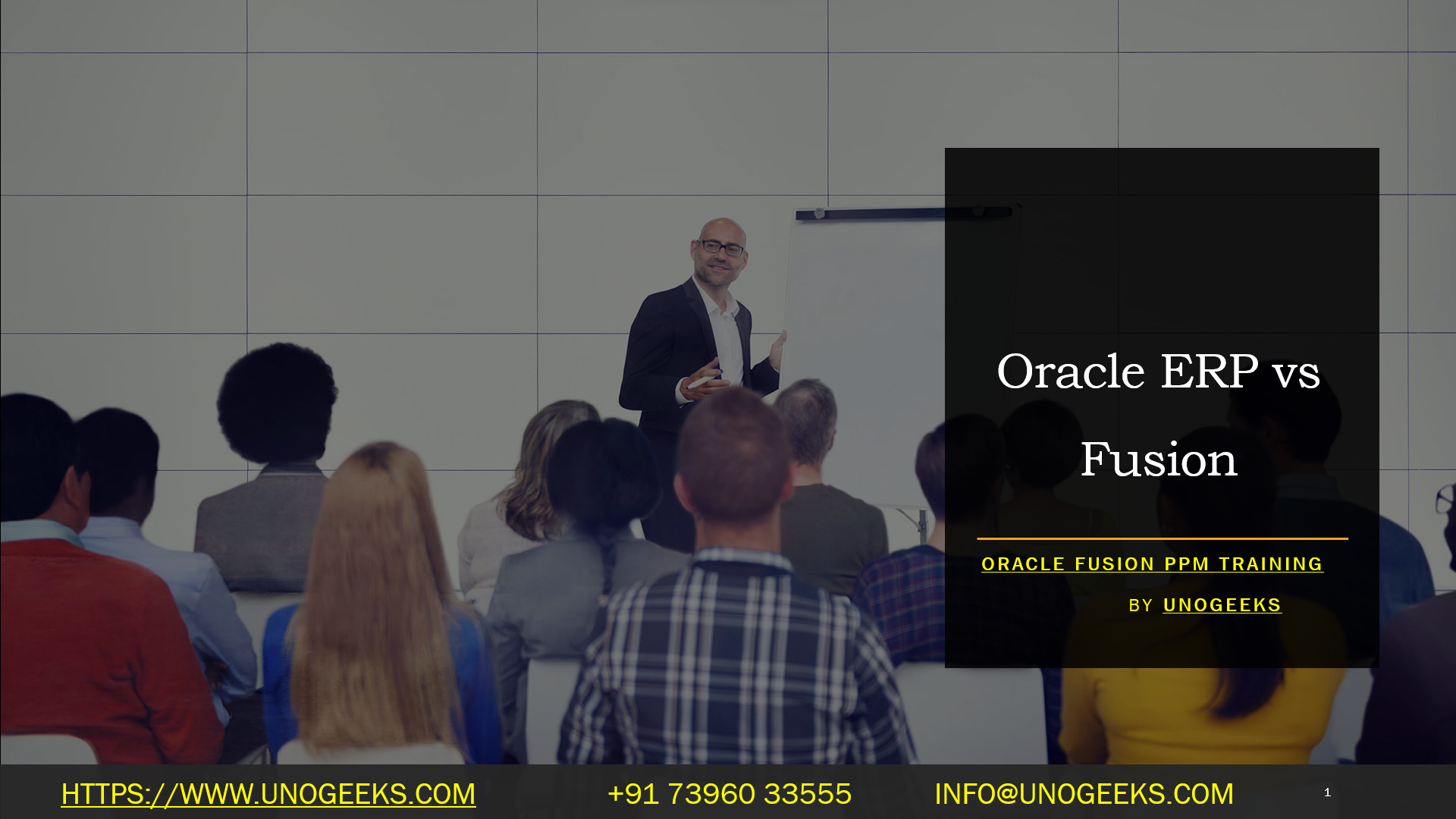Oracle ERP vs Fusion
Oracle ERP vs Fusion
Oracle ERP and Oracle Fusion (often referred to as Oracle Fusion Applications) are both part of Oracle’s suite of business applications, but they cater to different needs and have distinct features and objectives. Here’s a comparison to help you understand the differences between the two:
Evolution and Background:
- Oracle ERP: Refers to Oracle’s suite of Enterprise Resource Planning applications that originated from its E-Business Suite (EBS). This suite includes applications for financials, human resources, procurement, and other core business processes.
- Oracle Fusion: Fusion Applications is Oracle’s next-generation application suite, built from the ground up on the Oracle Fusion Middleware platform. It was designed to be service-oriented and to incorporate best practices from Oracle’s existing suite of applications.
Technology Stack:
- Oracle ERP: Typically uses the Oracle database and is built on traditional architectures.
- Oracle Fusion: Uses the Oracle Fusion Middleware platform, providing a set of standards for developing applications. This includes tools for business intelligence, collaboration, and various middleware options.
User Interface:
- Oracle ERP: Has a more traditional user interface that reflects its legacy roots.
- Oracle Fusion: Features a modern, user-friendly interface designed to be intuitive and provide a better user experience.
Modularity & Flexibility:
- Oracle ERP: Its modules are tightly integrated, which can make customization and upgrades a bit challenging.
- Oracle Fusion: Designed to be modular, which allows for more flexibility. Companies can adopt one module at a time, without having to commit to the entire suite.
Deployment:
- Oracle ERP: Primarily deployed on-premises.
- Oracle Fusion: Offers more flexibility in deployment, including on-premises, cloud, or hybrid options.
Integration Capabilities:
- Oracle ERP: Integration is possible but may require significant effort and customization.
- Oracle Fusion: Built to be more easily integrated with other Oracle applications as well as third-party systems, thanks to its service-oriented architecture.
Customization & Extensibility:
- Oracle ERP: Customization can be challenging and can complicate the upgrade process.
- Oracle Fusion: Built with extensibility in mind, allowing for easier customization without affecting the core application.
In conclusion, while Oracle ERP (EBS) is a robust and time-tested solution, Oracle Fusion represents Oracle’s vision for the future, with a modern user interface, flexible deployment options, and an architecture designed for easy integration and customization. Organizations looking to modernize their ERP systems or those looking for more flexible deployment and customization options might lean towards Oracle Fusion. However, the right choice will depend on the organization’s specific needs, existing infrastructure, and long-term goals.
ORACLE FUSION PPM Training Demo Day 1 Video:
Conclusion:
Unogeeks is the No.1 IT Training Institute for ORACLE FUSION PPM Training. Anyone Disagree? Please drop in a comment
You can check out our other latest blogs on ORACLE FUSION PPM Training here – Fusion PPM Blogs
Please check out our Best In Class ORACLE FUSION PPM Training Details here – Fusion PPM Training
Follow & Connect with us:
———————————-
For Training inquiries:
Call/Whatsapp: +91 73960 33555
Mail us at: info@unogeeks.com
Our Website ➜ https://unogeeks.com
Follow us:
Instagram: https://www.instagram.com/unogeeks
Facebook:https://www.facebook.com/UnogeeksSoftwareTrainingInstitute
Twitter: https://twitter.com/unogeeks
